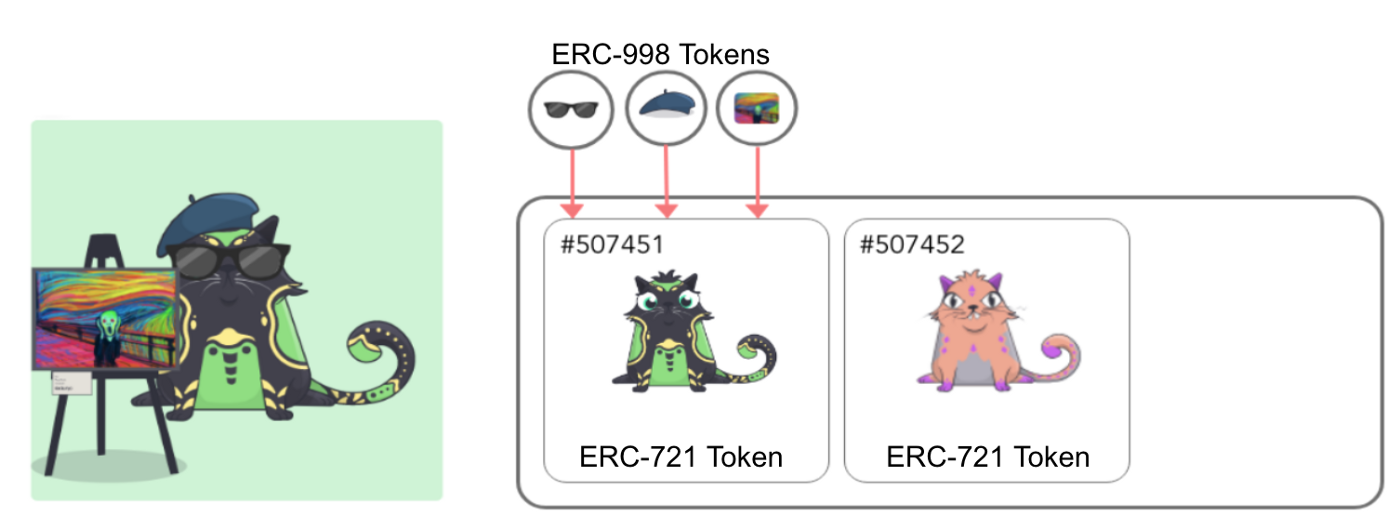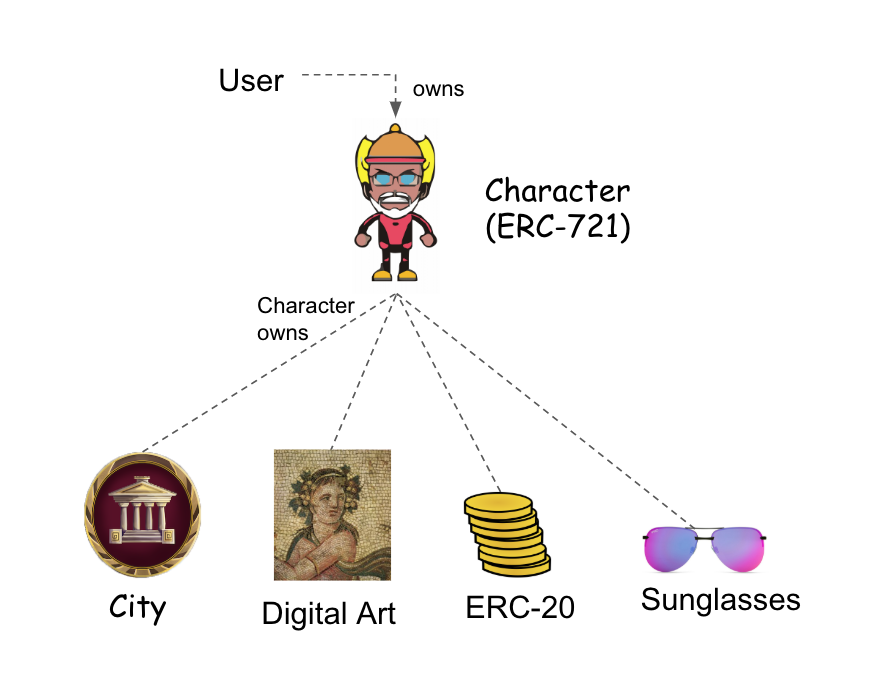In this article we are going to talk about Non-Fungible Tokens (NFTs) and one of the most usable Ethereum Request for Comments (ERCs), the ERC 998.
ERC 20: Fungible Token
This standard is proposed by Fabian Vogelsteller and Vitalik Buterin in 2015. Tokens in this standard are all fungible. Meaning that value of every token created in this standard is similar to other tokens. For example, all of the $LINK tokens’ value and price are the same, and all of the $UNI tokens’ value and price are the same.
So, in this standard, tokens created by the same contract will always value the same and buying an ERC 20 token is the same as buying another ERC 20 token of the same.
ERC 721: Non-Fungible Token
This standard is proposed by William Entriken, Dieter Shirley, Jacob Evans, and Natasha Sachs. Tokens in this standard are all non-fungible. This means that value of tokens created in this standard are not the same. As an example, buying a Bored Ape Yacht Club NFT will not cost you as the same as buying another Bored Ape Yacht Club NFT. So buying different NFTs of the same collection will cost you differently and by rarity and other features of the NFT.
ERC 1155: Non-Fungible Fungible Token
It is proposed by Witek Radomski, Andrew Cooke, Philippe Catstonguay, James Therien, Eric Binet, and Ronan Stanford. This standard gave another ability to NFTs. In this standard you can make copies of one NFT. For example, you can make 10 copies of an NFT and all of those NFTs will value the same, but will value differently compared to other NFTs.
If you are making a card game and you want to sort the cards by rarity, you can use this standard. For example you make a super rare NFT card with only 10 of them and a rare NFT card with 100 of them. All of the super rare cards will value the same but they will differ from the rare cards and the rare cards will value the same.
ERC 998: Composable NFTs
Lastly we are here to determine what composable NFTs are. This standard was proposed by Matt Lockyer, Nick Mudge, and Jordan Schalm in 2018. ERC 998 is an extension to the ERC 721 standard that adds the ability for non-fungible tokens to own other non-fungible tokens and ERC 20 tokens. This standard acts as an extension of ERC-721, allowing you to “compose” a new token from a group of ERC-721 assets.
For example, your in-game character can now be composed of all of its underlying NFTs: shield, sword, boots, special items, and even other ERC-20 tokens. When you are ready to sell or trade the character, it takes just one blockchain transaction, after which all underlying assets belong to the new owner.

